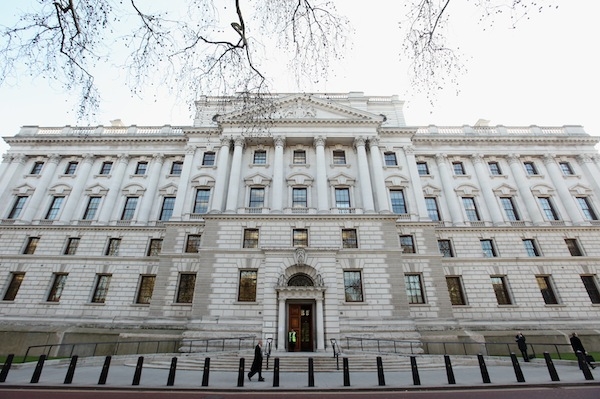
Roger Bootle is managing director of Capital Economics, and winner of the Wolfson Economics Prize. As the government launches another attempt at boosting UK growth, the economist, who describes himself as a ‘rare right-wing Keynesian’ shares his thoughts on ministers’ economic prowess with Coffee House readers.
Do you think the government will be able to fight the next general election on the issue of the economy?
‘I think it’s too early to tell, but if the economy is completely flatlining and the deficit does not go down – which seems to me to be perfectly possible, there are strong signs things are going to look bad for them. But the Balls strategy does not sound right and if the idea that the way out of this problem is for the government to spend more does not ring true with the British public, I suspect that they might just get away with it.’
Are you happy that George Osborne continues to be chancellor?
‘I don’t think it’s the main issue – I think the personality thing is exaggerated in all of this: I think the drive has to come from the Prime Minister.’
The New Statesman reported in August that you and other economists had turned on the Chancellor and urged him to change course. The story suggested that you had changed your mind about a letter in the Sunday Times that you had signed backing his plans to eliminate the structural current budget deficit. Have you turned on the Chancellor?
‘The thing is when you write a letter like this, there are always bits and pieces of it that you would rather were slightly different. I do not actually feel bad about that.
‘In the New Statesman piece, as for so many people, I think they failed to distinguish between current spending and capital spending.’
(You can read the original Sunday Times letter here).
So what is your position on where the government is going wrong and where it’s performing well?
‘I’m a real hawk with regards to cutting government spending: the strategy that I support is about massive cuts in spending to finance cuts in taxation. The speed of deficit reduction is important because in strict Keynesian terms it’s all about the speed at which we impose cuts on the economy in the hope that the private sector can respond.
‘Is public spending too high and should it be lower? I’m well to the right of Osborne on this. The £6 billion in cuts was I think the right thing to do.
‘I think one of the reasons for what is happening currently is that they thought this was going to be a conventional downturn, but they have been constantly surprised by how weak the economy is.
‘There is also the idea that if you make cuts, the private sector is going to be able to bounce back into that space. In that regard I think part of the problem here has been the Conservative party: they have put their faith in what happened with Thatcher in the early 1980s, if you remember in the early 1980s they cut public spending and a recovery blossomed. But the circumstances were very very different for a start they were also able to cut interest rates, also the banking system was not bust.
‘I do not believe in the Balls view that you can borrow your way out. If Miliband and Balls came in and had a great public spending spree, I think that one of the consequences is that ordinary consumers and business people would suspect that this was going to end in tears.’
Where would you like the Treasury to go next?
‘I’d like them to increase spending on public investment and aim to do a bit more quantitative easing to finance it.
‘I have also argued that the foreign aid budget should be suspended until the UK economy has been sorted out. The government also really needs to make a decision about airports, because this would be delivered by the private sector: it’s all about getting the private sector to do things.’






Comments